This post has been medically reviewed by Dr. Sarah Mathis, D.O.
Okay folks, so CoQ10 for female fertility and male fertility is pretty darn amazing. There are two kinds of CoQ10 supplements- Ubiquinol and Ubiquinone – and both are linked to increases in female fertility and male fertility (sperm health). Coenzyme Q10 is especially helpful if you are 35 or older, or if you have fertility issues like diminished ovarian reserve (like I did!).
In this blog post, I’m going to talk about egg health and aging, the latest research on COQ10 improving egg quality for age-related infertility, the best CoQ10 to take for fertility, and how to take Coenzyme Q10 to maximize its effectiveness. But, I’m going to start with how CoQ10 helped me get pregnant, TWICE and the test analyzer I am for this process!
If you love this post, be sure to check out my in-depth analysis of the best prenatals for trying to conceive and for pregnancy!
Table of Contents
1. CoQ10 Helped Me Get Pregnant TWICE with Diminished Ovarian Reserve
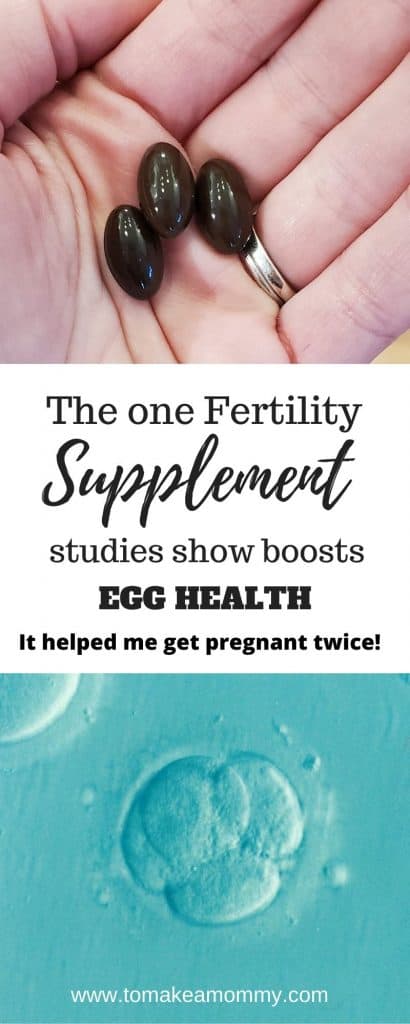
When I was trying to get pregnant, I struggled for two years with multiple miscarriages and the doctors told me I had poor egg quality- basically bad egg health was to blame for my recurrent losses. I was also diagnosed with High FSH, low AMH, and low antral follicle count. I was only 32, so this meant that I had “diminished ovarian reserve” for my age, in addition to “bad eggs.” I also had endometriosis with painful, heavy periods, and a single MTHFR mutation.
When my FSH hit 34, my doctors said that an egg donor would be the only way to get pregnant. I wasn’t ready to go down that path so I researched, and researched for weeks and months, and did EVERYTHING I found to boost my fertility naturally! One of the little miracles I discovered was CoQ10, and amazingly, it was one of the very few supplements that my doctor actually agreed I should take.
As I did more research, I learned that CoQ10 could also help with sperm health, so my husband started taking the supplements as well.
WIth high doses of CoQ10 (and a lifestyle and diet overhaul), I got pregnant in under three months. And then- I did it again for a second baby when I was 35!
I’m now a devotee of Coenzyme Q10 supplements even though I’m not currently trying to conceive. I’ve been off caffeine for over five years now, and CoQ10 gives me the energy I need as a mom of small children.
Okay, let’s talk about what CoQ10 is for a minute.
Oh hey, I’m not a healthcare provider in real life or on the internet. What I am is a woman who has two graduate degrees and was taught how to read scientific studies and understand them (and their weaknesses). I was struck by how little information my Reproductive Endocrinologists gave me, and how often their advice seemed to conflict with research. That is one of the main reasons I started this blog- to try to translate the medical research into everyday English and help women trying to conceive make decisions about their own health.
As for everything on this blog- it is for inspirational and informational purposes only. It is not intended to treat, diagnose or prevent any disease and it does not replace evaluation, diagnosis, or treatment by qualified health care professionals. I encourage you to own your baby journey and make your own health care decisions based upon your research and in partnership with wise healers and qualified health care professionals who can provide you with tailored information and treatment opportunities.
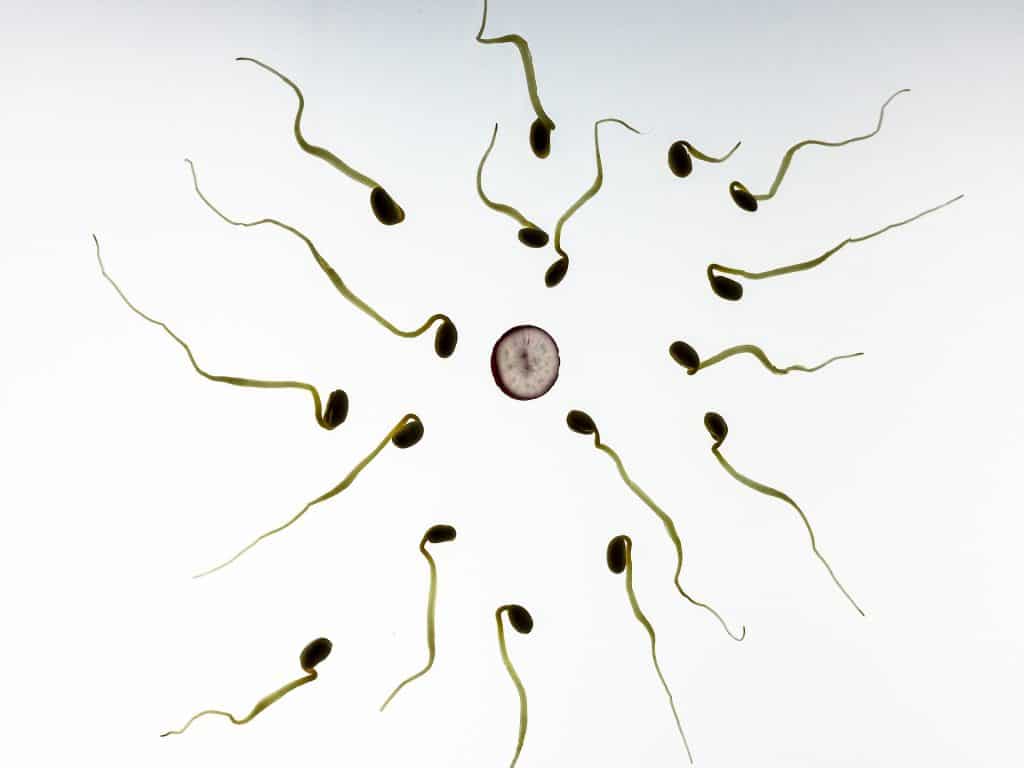
2. What is CoQ10 and how does it improve fertility?
Okay, so here we go with the science stuff! CoQ10 supplements are an antioxidant that is naturally occurring in our bodies. It is made and used in all cells of humans!
CoQ10 is essential to helping the mitochondria in our cells PRODUCE ENERGY. Mitochondrial energy is EXACTLY what we need for healthy eggs and healthy sperm.
Being an antioxidant means that it slows down the oxidation/deterioration of cells and protects them from the effects of free radical damage. This is super important to countering “oxidative stress” which is when there is a disturbance between the balance of free radicals and protective antioxidants.
Various lifestyle behaviors and environmental toxins can increase your free radical damage and throw everything out of whack- smoking, pollution, STDs., and maybe diet and foods.
Oxidative stress reduces sperm motility, number, sperm-oocyte fusion, successful pregnancy rates, and fertility. So, you do NOT want oxidative stress! You want unstressed, yet energetic mitochondria, y’all.

3. Can you limit the oxidative stress on your mitochondria?
The first thing you can do to lower oxidative stress is of course minimize your behaviors, toxins, dietary needs and foods that are stressing your body out.
But, we can’t ever completely eliminate our exposure to environmental toxins, and just simply by aging we have low levels and have more reduce oxidative stress on our cells.
So, if we want high-functioning mitochondria (like the kind we need to make babies), in addition to changing our lifestyle and diets and foods, we can use the antioxidant CoQ10 to boost our fertility.
4. Coenzyme Q10 and Aging- How CoQ10 Benefits Fertility and Egg Health
Hey, wait, Anna, didn’t you say all of our cells already make this stuff? Why do we need to take it as a supplement?
Yes, but here’s the thing– as we get older, our cells make LESS CoQ10! We have the most naturally occurring CoQ10 in our bodies for the first 20 years– and then, it declines as we age. So as we get older we have less innate ability to manage this oxidative stress damage. Enter, the supplemental CoQ10.
(By the way, CoQ10 is kind of a miracle drug beyond fertility since it is kind of like a capsule of our body’s own fountain of youth. Other things CoQ10 has been shown to potentially help with include: high blood pressure, immune system, chronic fatigue syndrome, fatigue, high cholesterol, protection from chemotherapy, gum disease, age-related macular degeneration, Alzheimer’s, Parkinson’s, and migraine headaches.)
While you are in research mode, check out this free report on How to boost Egg Health.
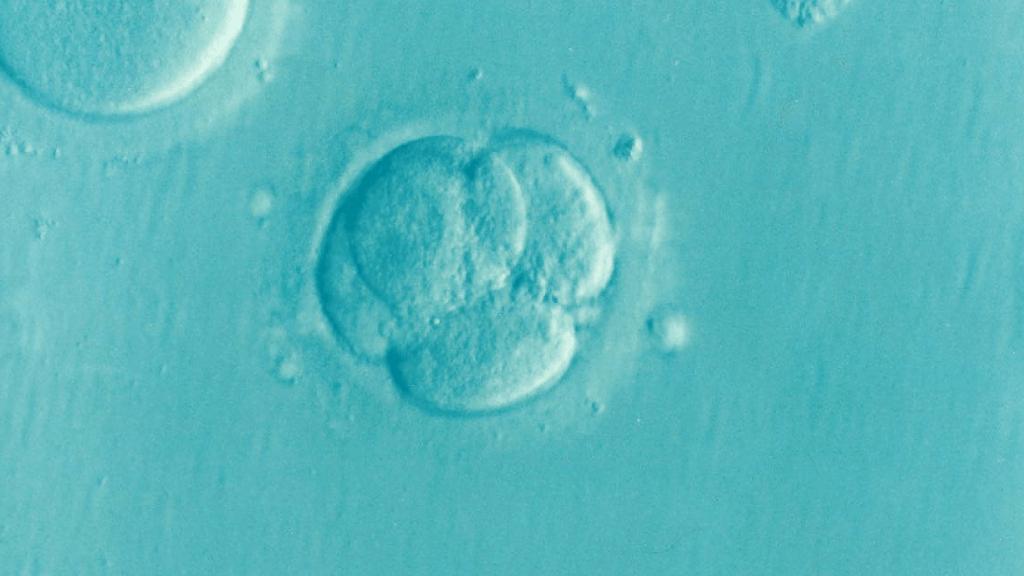
5. Coenzyme Q10 (CoQ10) for Egg Health in a Female Women Over 35
Okay, so the media has helped us all be terrified of the fact that fertility really does decline with age. Okay, we get it. Our egg quality declines. Egg quality is really the biggest issue with getting pregnant and having a healthy live birth for women older than 35.
But, here’s the amazing thing. New research is showing that we can potentially – to some extent- REVERSE this process through diet, non-toxic lifestyle, and supplementation.
The issue with egg and embryo quality boils down to having high-performing mitochondria that make plenty of energy at just the right time. The more an egg can produce enough energy at the right time the more likely it is to grow well and fertilize successfully.
So, if you are struggling with age-related infertility or diminished ovarian reserve, you need to focus on getting your eggs (and your hubby’s sperm) to produce gorgeous energy.
And CoQ10 is just the right supplement to boost that. If we know that a higher level of follicular fluid CoQ10 is linked with higher quality eggs and a more successful pregnancy rate, then if your are older with less natural CoQ10, it makes sense to supplement. You are helping your mitochondria make more energy- exactly what you need to support a healthy embryo.
Women over 35 get the biggest benefit from CoQ10 in terms of improved egg health and pregnancy success rates.
This makes sense- the older your eggs, the less efficient eggs are at producing the crucial mitochondrial energy needed for fertility. Successful ovulation of a healthy egg requires a ton of energy!!
Taking CoQ10 helps you get all that extra energy for ovulation that you lost as you got older.
6. The Research on CoQ10, Fertility, & Egg Health
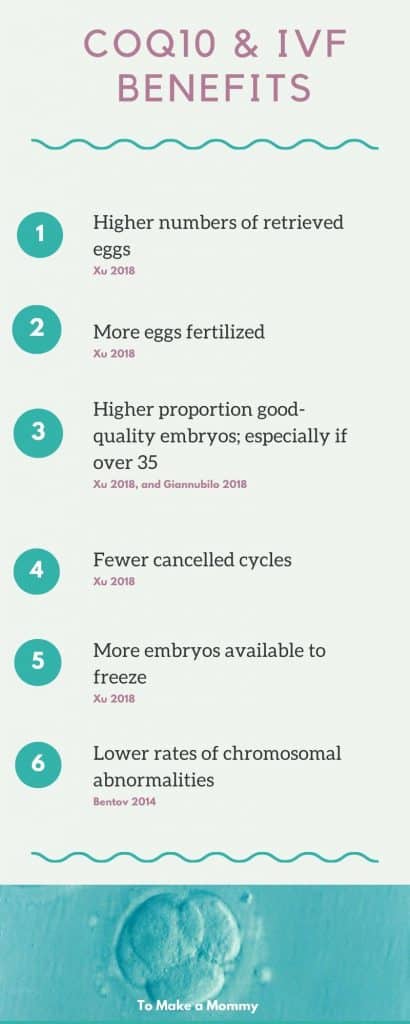
Where’s the research, Anna? Okay, okay, here it comes with all the benefits so continue reading!
We have plenty of studies showing us that egg quality decreases with age, but the main cause of this isn’t proven. But some research, like this gov site, has shown that aging eggs also have mitochondrial dysfunction which seems to be because of not enough CoQ10— and that this might be driving age-related infertility.
Hey, and for those younger ladies out there with diminished ovarian reserve (High Fsh, Low AMH), or with poor ovarian response to IVF stimulation, CoQ10 has also shown benefits for increasing egg and embryo quality and ovarian response! This makes sense because Diminished Ovarian Reserve is likely linked to some kind of increased oxidative stress (that isn’t just from aging).
Research has confirmed that taking CoQ10 for a couple of months before doing IVF retrieval boosts egg quality. The extrapolation to natural fertility is easy- we get the boost in egg quality also, ladies!
In the studies, women taking CoQ10 for a couple of months before egg retrieval had these benefits:
- Higher numbers of retrieved eggs (Xu 2018)
- More eggs are fertilized (Xu 2018)
- A higher proportion of good-quality embryos (Xu 2018), especially in over 35- year-old women (Giannubilo 2018)
- Fewer cancelled cycles/a better response to stimulation – only 8 % of cycles canceled versus 23% of non-CoQ10 (Xu 2018)
- More embryos are available to freeze (Xu 2018)
- Lower levels of chromosomal abnormalities – 46% versus 62.8% (Bentov 2014)
If those numbers aren’t enough to convince you, I don’t know what is!
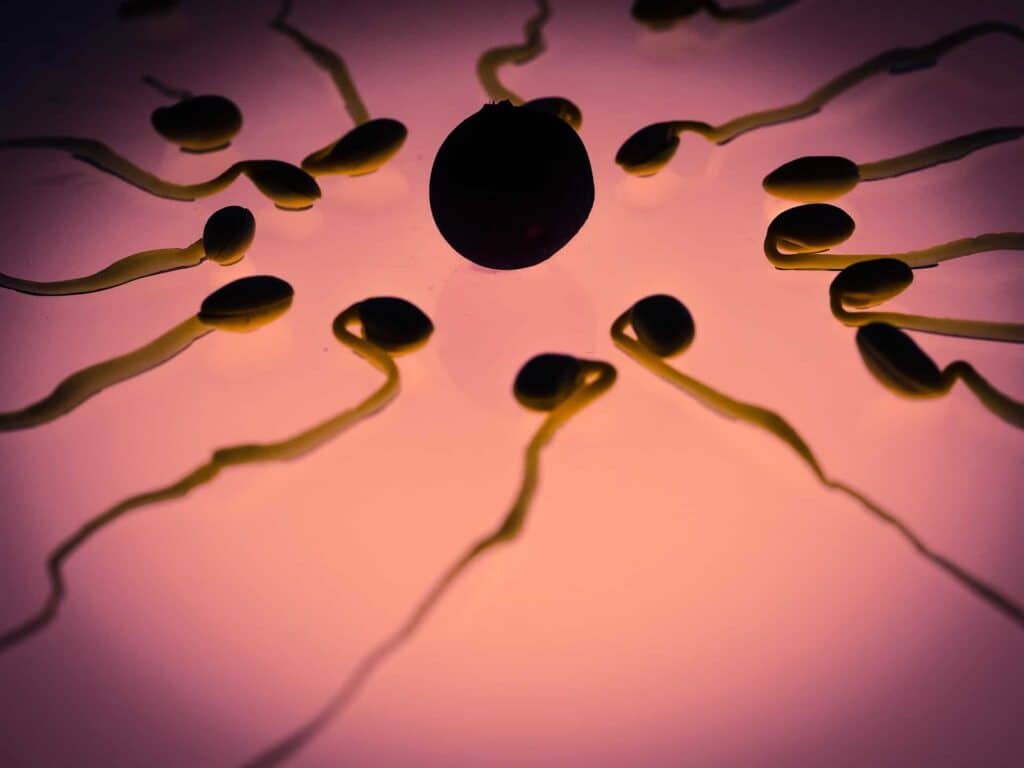
7. What is the Best CoQ10 For Fertility- Ubiquinol or Ubiquinone?
Alright ladies, here is where opinions get heated! Here is the deal: Both Ubiquinol and Ubiquinone work. We have both in our bodies, and they are freely transformed into each other, back and forth each day.
Quality Matters in CoQ10
And, all the CoQ10 formulations on the market are different due to the actual CoQ10 type, the manufacturing process, amount used, AND the specific fats and additives that help deliver the antioxidant to your system quickly (i.e., increase bioavailability). There are powder-pressed CoQ10s (not very bioavailable), soft-gel CoQ10s in water, and soft-gel CoQ10s in different kinds of oils- soy, olive, coconut, rice (more bioavailable).
So, quality, i.e., bioavailability, i.e., how much your body is actually able to process and use, varies widely in CoQ10 supplements.
But, it all works. You just need to take significantly MORE of the reduced quality stuff. The cheaper the supplement, the lower the quality, generally.
The more expensive, the better quality. This also means you need to take LESS of the more expensive kinds, thus making it not actually that much more expensive. Does that make sense?

Deciding between Ubiquinol and Ubiquinone for Fertility
For years doctors have said to take Ubiquinol over Ubiquinone because it is more bioavailable. But here’s the thing, there is some Ubiquinone that is more bioavailable than Ubiquinol. Confused yet? I bet you are. We all are, hahahaha!
Here’s what happened it a nutshell:
Almost all women’s CoQ10 research was originally done with Ubiquinone. It showed incredible improvements in many areas, primarily heart muscles/cardiovascular system and immune system, but also fertility.
Then there was a study by Dr. Hosoe of Japan in 2007 that used the new Kaneka Ubiquinol. Someone compared the results of that study with a Parkinson’s study done by Beal, Sheltz, and Haas in 1998 that used a dry powdered crystalline form of ubiquinone which was poorly absorbed (that’s all they had back then!). And, lo and behold, people started saying Ubiquinol was eight times as effective, based on those two studies that really can’t be compared.
These studies were done almost 10 years apart, and didn’t review all forms of Ubiquinone and Ubiquinol. So, it isn’t really a fair comparison.
Given the recent results of the 2018 Giannubilo study, it seems like Pharmanord Bio-Quinone Gold may be the most bioavailable that has been researched- even though it is an Ubiquinone. The study saw increases in egg health with only 200mg a day – less than used in any other study. With over 100 clinical trials, it is one of the most widely researched CoQ10s on the market. It is also what my husband and I personally use.
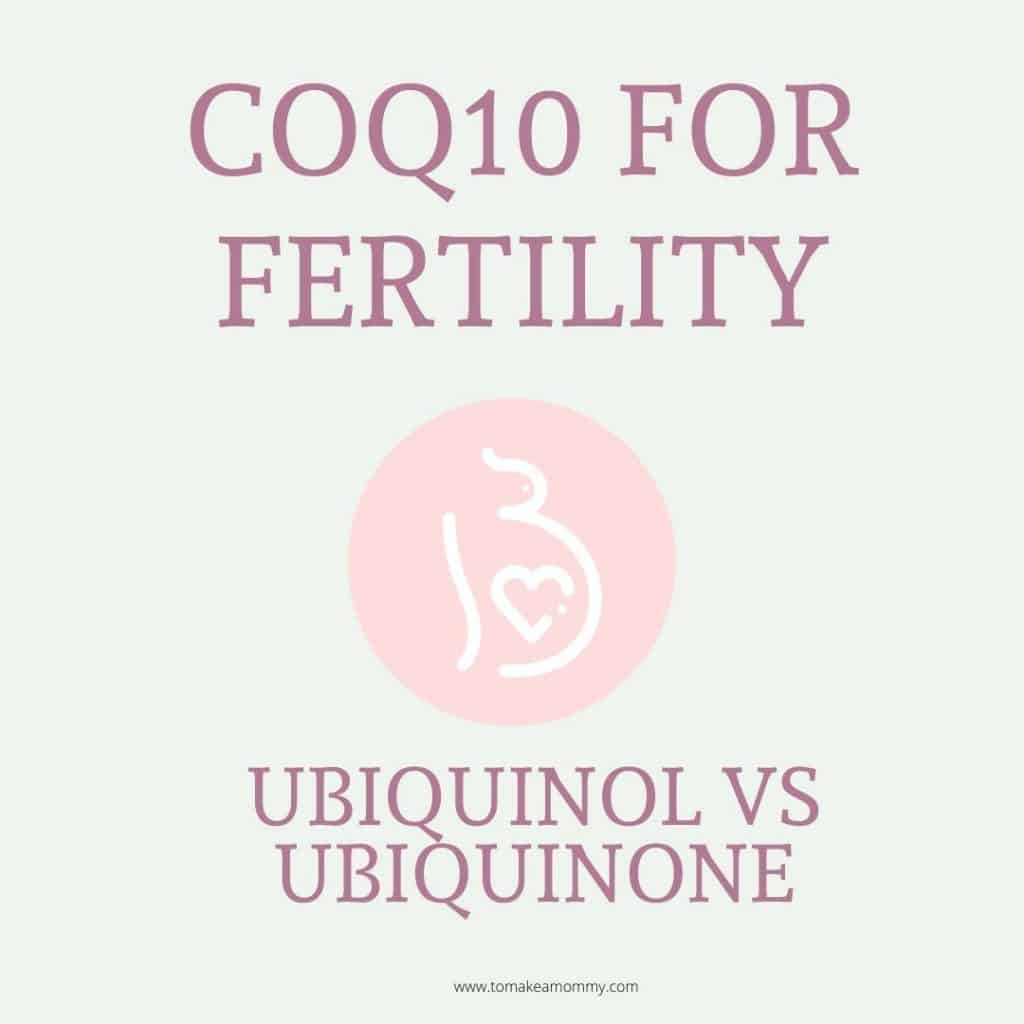
8. The relationship between Ubiquinone and Ubiquinol
Here’s the science on the relationship between Ubiquinone and Ubiquinol in case you want to get nerdy:
Ubiquinol is an antioxidant throughout the body and is produced in a 17 step biochemical process. Once it donates two electrons to neutralize free radicals/oxidative damage, it is transformed to ubiquinone. And then, ubiquinol is produced again in a two step process after the ubiquinone makes Adenosine Triphosphate (ATP) in the mitochondria.
ATP provides the energy to drive many processes in all living cells.
For egg health, both the ubiquinol and ubiquinone have a role. The ubiquinone provides ATP (ENERGY FOR EGGS) and once it is used in ATP production (where it receives two electrons), it becomes ubiquinol. The ubiquinol is then used to neutralize oxidative damage (by donating two electrons) and the byproduct of this donation is ubiquinone (EGG HEALTH).
So basically, ubiquinol changes to ubiquinone and then it changes back to ubiquinol in the body, in a beautiful cycle. This beautiful cycle both gives energy and protects against DNA and cell damage.
Pretty cool, huh? And you get the benefits from whichever you take- ubiquinol or ubiquinone. You just want whatever is the most bioavailable so you’re getting the most benefit.
9. What is the right fertility CoQ10 dosage that doctors recommend for age related infertility or diminished ovarian reserve?
I know. We are all wondering how much CoQ10 to take for fertility! There is a lot of confusion out there and every Reproductive Endocrinologist seems to recommend a different dosage! Here’s why:
Originally doctors said 300mg Ubiquinol/600 mg standard Ubiquinone per day based on this one study from 2014 on CoQ10 and Oocyte Aneuploidy (the study had strong results but was cancelled before it finished, btw). It showed that the rate of aneuploidy (abnormal number of chromosomes) was less for the CoQ10 group than for the control group, and clinical pregnancy rate was slightly higher.
The 2018 Xu study that showed great improvements to fertility also used 600mg standard Ubiquinone (which would also roughly translate to 300mg Ubiquinol).
But then the 2018 Giannubilo study showed increased egg quality in women over 35-years with only 200 mg/day of a special highly-bioavailable Ubiquinone for 30 days! This is a huge difference from the early studies, and suggests this new form of Ubiquinone, the Bio-Quinone Gold, might be even more bioavailable than Ubiquinol.
So, your dosage really, really depends on what kind of CoQ10 you are taking. And, how much you can afford. Because, here’s the thing- some infertility doctors still recommend huge doses of CoQ10, up to 800mg/day because 1) it is so safe with few serious side-effects, and 2) they figure the more, the better, right? In fact, some studies on heart patients have gone up to 1,200 mg/day without many side effects.
Please note, that just because doctors aren’t worried about side effects, doesn’t mean they might not bother you. Taking too much COQ10 can lead to insomnia, headache, and stomach issues, for some patient.
But, at some point, ladies, you are really just going to pee this stuff out. Your body can only synthesize so much. AND, if you’re taking good quality stuff it is EXPENSIVE. So, don’t spend a gazillion dollars and take so much your body can’t process it.
10. How much CoQ10 I took for Fertility
Personally, I took 300mg Ubiquinol when trying for my first and second baby (prior to learning about Bio-Quinone and the Giannubilo study). Now, my husband and I take 200 mg/day of the Bio-Quinone.
At some point, hopefully, we will get a good study that looks at different levels of CoQ10 dosage per day and its effectiveness on egg health, but until then, you need to base your dosage on what kind you are taking, and discuss with your doctor!
The research seems to imply that for egg health a good dosage is 200mg- 300mg of a highly bio-available like the Bio-Quinone, or 600 mg of a less bio-available CoQ10. Of course, discuss with your doctor!
When taking a really high-quality CoQ10, watch out for insomnia. Some tricks to beat it are below!
11. How to take CoQ10 for fertility for the best absorption!
- Take your doses of medicine spread out- 100mg at a time, with at least an hour in between each dose. More than 100mg at a time and your body may not absorb it all of it, and it will be wasted.
- Take them spaced out in the morning so you don’t get insomnia at night. I try to avoid taking CoQ10 after noon, some people can take until 5pm. So, for three doses, it would be something like 7 am, 8:30 am, 10 am.
- Take less if it upsets your stomach (although research suggests you can’t really overdose on this stuff).
- Eat some fertility friendly fats with your dose- avocado, olives, coconut butter, nuts, seeds, etc.,to help your body process the CoQ10. This is less important with the highly bioavailable CoQ10s like the Bio-Quinone Gold which are packaged with an oil.
Want to get pregnant fast?
Love lists? Me too. Grab my 79 Things I did to transform my life and get pregnant in less than 3 months after 2 years of infertility and miscarriages! Totally free!
Anna Rapp is a fertility journalist and non-toxic living expert. When Anna Rapp was struggling with infertility and recurrent early miscarriage, she was diagnosed with diminished ovarian reserve, High FSH, low AMH, low follicle count, endometriosis, and an MTHFR mutation. Despite being told donor eggs were her only solution, Anna used her graduate training in research methods and analysis to read everything she could find on fertility and egg health. Ultimately, she lowered her FSH and got pregnant naturally (twice). She blogs about how she did it and encourages her readers to take charge of their fertility journey and get happy, healthy, and pregnant!
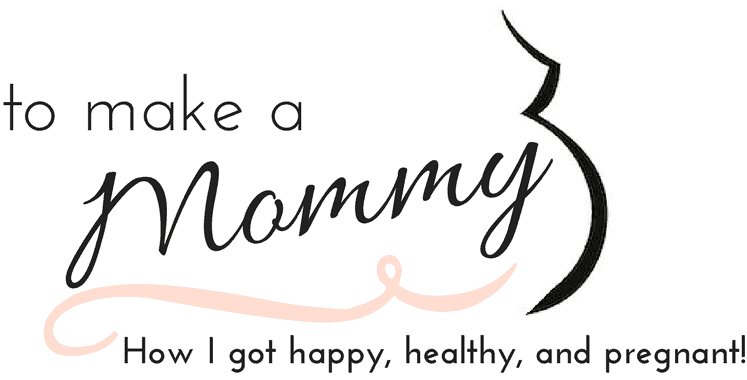

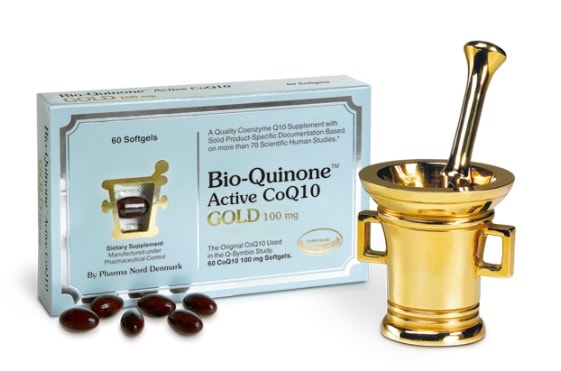
Very informative, thank you! You answered all of my questions. Thank you again!
Hi I’m Anna I’m 58 trying to get pregnant naturally can I take ubiquinol 300 MG to get pregnant I want another baby but don’t get period only I ovulate.
Hi Anna this is Joyce from Karnataka, i have one kid after, his now 10th std , now we planning for baby, from my husband count is good. But mine eggs quality and quantity is less thrice I underwent IUI but no results, iam also medical back round …one of my friend suggested dr. Which tab is good and how doses I have to tk ..0lease let me know
You should focus on diet. Eat colorful vegetables and fruits. Get good quality sleep( atleast 8 hours). Switch off mobile phones, TV, ipad minimum 1 hour or better 2 hours before bedtime. The blue light from phones and electronic devices can affect your melatonin levels ( which can affect your fertility). Avoid wearing perfume, nail polish, and switch to natural makeup( dump toxic laden mainstream cosmetic and skincare products). Walk 30 minutes daily. Do meditation. Bring your stress down. Follow some fertility dieticians or fertility nutritionists on Instagram. Like Anna, they also share a lot of tips and information to improve your chances of conception. I wish you luck.
Hi .. question. Do you know when you should stop eating them? If its for egg quality, then its not necessary to take it during FET ?
Hi,
This was so helpful! But can you please tell me if you stop during the tww or when you get a positive test?thank you!
Hi Anna,
Does CoQ10 increase AMH levels? Meaning would a blood test show a difference in AMH level after a month or two use of Ubiquinone?
Do you know if the brand you recommend is vegan? I can’t seem to find on their website. Thank you!
Hi Anna, thank you for this. My husband has low sperm count how can he take the CoQ10. Thank you
I just came across your blog and not sure if I can do all 79 things 🙂 but thanks so much for sharing your story and research! I also wanted to drop a note regarding COQ-10 – I’m 37 and have been trying to conceive for a year. Last year, before taking any supplement, I did blood testing and my AMH was 0.8, which is not great. I was just tested after taking an el cheapo caplet version for about 8 months. The only changes I’ve made is taking a good prenatal and the COQ-10. Anyhow, my new AMH was 2.1 – it more than doubled. I don’t know if all women will have this result, but I am very encouraged that this will help me eventually conceive.
Hi Jennifer – What brand of CoQ10 did you take?
Really good article. I take PharmaNord Ubiquinol – but will up the dosage as suggested.
Hi!! Thanks for this great article. I’ve been taking 600mg of Pharma Nord bio quinone gold, since january. But just stopped since I got my first ever BFP with my one and only embryo🙏
But you say that 200mg should have been enough? Now I’m worries I’ve been taking too much and if it can harm anything? Are you sure you pee it out, when its a fat solluble?
Thanks so much🙏
you don’t have to worry! Technically we poop out any extra!
Hey Anna what is the best supplements for egg increase to fix the radical damage cells at 50 yrs old
I’d jump on a call with Dr. Sarah Mathis if I was you!! https://www.sarahmathisdo.com/
Super helpful info. Will be t blog.
Could you explain a bit more about the Kaneka CoQ10 and this PharmaNord? I was just about to purchase that Kaneka.
Is Kirkland C0Q10 300 mg okay for good eggs? I started taking it but not sure if it is uniquinol or uniquinone. It doesn’t state which one on the bottle but it states C0Q10 300mg. Any help.
I would also like to know this. Do you consider the Kirkland Coq10 a high quality supplement?
What was your ANH level and FSH? Thanks.
Hello,
Thank you for such a detailed account of the role of CoQ10. Can you point to which brand of CoQ10 you took while trying to conceive your first and second child?
Thank you!
In the articlrle she says she took Bio-Ubiquinol 300mg from pharmanord before she got pregnant but now taking Bio-Quinone 200mg
Can you take C0Q10 while breastfeeding? I’m still breastfeeding my toddler but we are trying for another baby after having a MC.
Hi Anna,
Thank you for all this and your success story gives me hope.
Would you recommend the Bio-Quinone or the Bio-Ubiquinol you took before concieving?
Thank you it’s so informative and educational. I read an article saying folic acid is bad for the mothers to be and unborn babies. My Dr strongly recommended me to take folic acid and I am so concerned since I am ttc.
Please do reply 😁
Beautifully written 🌹👍🏻
Hi! I am finding it very difficult to find this exact supplement. Where do you buy yours and where can I get them?
Hi can you take this while pumping and brestfeeding? I want to start trying for 2nd baby in October and is it safe to take now before October ? And breast feeding & expressing ? Thanks 😊
Hi Anna this is Joyce from Karnataka, i have one kid after, his now 10th std , now we planning for baby, from my husband count is good. But mine eggs quality and quantity is less thrice I underwent IUI but no results, iam also medical back round …one of my friend suggested dr. Which tab is good and how doses I have to tk ..0lease let me know
Can you take 200mg when you’re pregnant?
The CoQ10 brand you are recommending in this article has soy bean oil in it. I ordered it based on your recommendation in the article. However, now I’m wondering if it’s safe to take pre pregnancy as it has soy in it, and from what I read you had advised to avoid soy because of how it plays with estrogen…….
What are your thoughts?
Also wondering this.
I’ve actually emailed with the company about this very issue! First of all, the soy oil used in the Bio-Quinone is pharmaceutical grade and has no remnants of isoflavones, the plant-estrogen, so no worries. Also, I have no proof that there is a problem with soy isoflavones, it is just a suggestion to not eat it based on the possibility it MIGHT be harmful. Does that make sense? It’s not like other things like alcohol, or caffeine where we have evidence. If you want a bite of your husband’s tofu, go ahead. Just maybe don’t chow down on soy every day.
I am really impressed with this article, Starting tomorrow I am gonna look for the COQ10. Unfortunately it’s a little bit hard to find it, as I live in Russia and the government closed its borders with many pharma companies.
Anyway I will tell you after some time about my results
Good luck Vicky!!